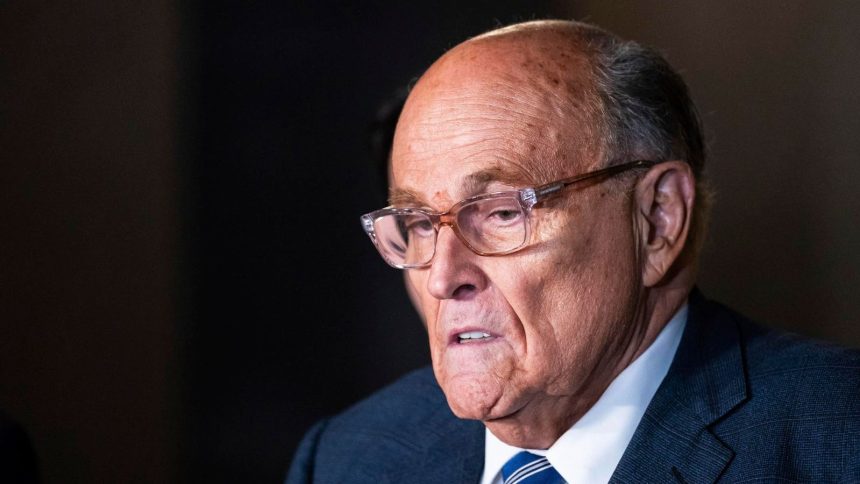Rudy Giuliani, former attorney for Donald Trump, has been held in civil contempt by a federal judge for failing to comply with a court order to surrender assets to Ruby Freeman and Wandrea “Shaye” Moss, two Georgia election workers whom he defamed with false allegations of election fraud. This contempt ruling stems from a successful defamation lawsuit brought by Freeman and Moss, resulting in a $148 million judgment against Giuliani. The judge’s decision, following a two-day hearing, underscores the ongoing legal battles Giuliani faces related to his post-2020 election activities. While the specific sanctions for the contempt finding are yet to be determined, they could range from fines to imprisonment, though the latter has not been requested by the plaintiffs.
The core issue revolves around Giuliani’s failure to fully disclose and transfer assets as mandated by the court. Freeman and Moss argued that Giuliani withheld crucial information and items, including bank account details, valuable possessions like a Joe DiMaggio-signed shirt, and documentation related to his apartment and Mercedes-Benz. Giuliani, who filed for bankruptcy shortly after the defamation ruling, admitted to not fully complying with the order, claiming it was overly broad and a potential “trap.” He also cited the burden of numerous legal battles as a contributing factor to his non-compliance. This explanation, however, failed to persuade Judge Liman, who ultimately ruled against Giuliani.
This contempt ruling is part of a larger, complex legal web surrounding Giuliani. A second contempt hearing is scheduled for January 10 in Washington, D.C., as part of Freeman and Moss’s original defamation case. This separate hearing addresses Giuliani’s alleged continued defamation of the election workers, despite a court order prohibiting such actions. Giuliani, through his online broadcasts, has persisted in making false claims linking Freeman and Moss to election fraud, directly violating the court order. Further complicating matters, a trial is set for January 16 to resolve disputes over the surrender of Giuliani’s Florida condo and New York Yankees World Series rings, which Giuliani claims he gifted to his son.
The inventory of assets Giuliani is required to surrender is extensive, ranging from his New York City apartment and Mercedes-Benz to cash, furniture, sports memorabilia, jewelry, and watches. However, discrepancies have arisen regarding the specific items, with Giuliani contesting the ownership of certain pieces, including “costume jewelry” and the exact number of watches. These discrepancies further fueled Freeman and Moss’s argument for contempt, suggesting a deliberate attempt by Giuliani to obfuscate and withhold assets. The ongoing disputes highlight the challenges in enforcing the court order and collecting the substantial damages awarded to Freeman and Moss.
Giuliani’s legal woes extend beyond the defamation case, encompassing multiple lawsuits and criminal charges. He faces pending lawsuits from voting machine companies Dominion Voting Systems and Smartmatic, also related to false election fraud claims. Furthermore, he faces criminal charges in Georgia and Arizona, though the Georgia case is currently paused due to an appeal regarding the overseeing district attorney’s qualification. These interconnected legal battles paint a picture of Giuliani’s continued defiance and denial of wrongdoing, despite mounting evidence and legal setbacks.
The saga of Rudy Giuliani, from prominent attorney to embattled figure facing numerous legal challenges, serves as a stark reminder of the consequences of spreading disinformation and undermining democratic processes. His ongoing legal battles, including the recent contempt ruling, highlight the complexities of holding individuals accountable for their actions and the challenges of enforcing court orders in high-profile cases. The outcome of these legal proceedings will undoubtedly have significant implications for Giuliani’s future and serve as a precedent for similar cases involving defamation and the spread of misinformation. As the legal battles continue, the focus remains on ensuring accountability and upholding the integrity of democratic institutions.



